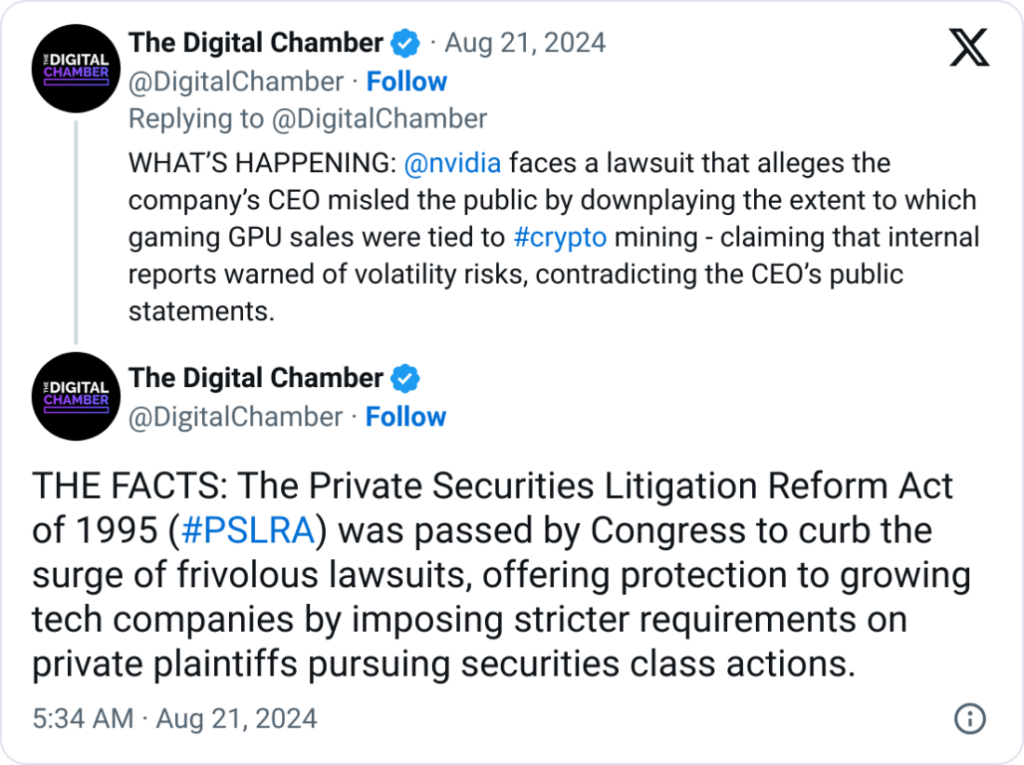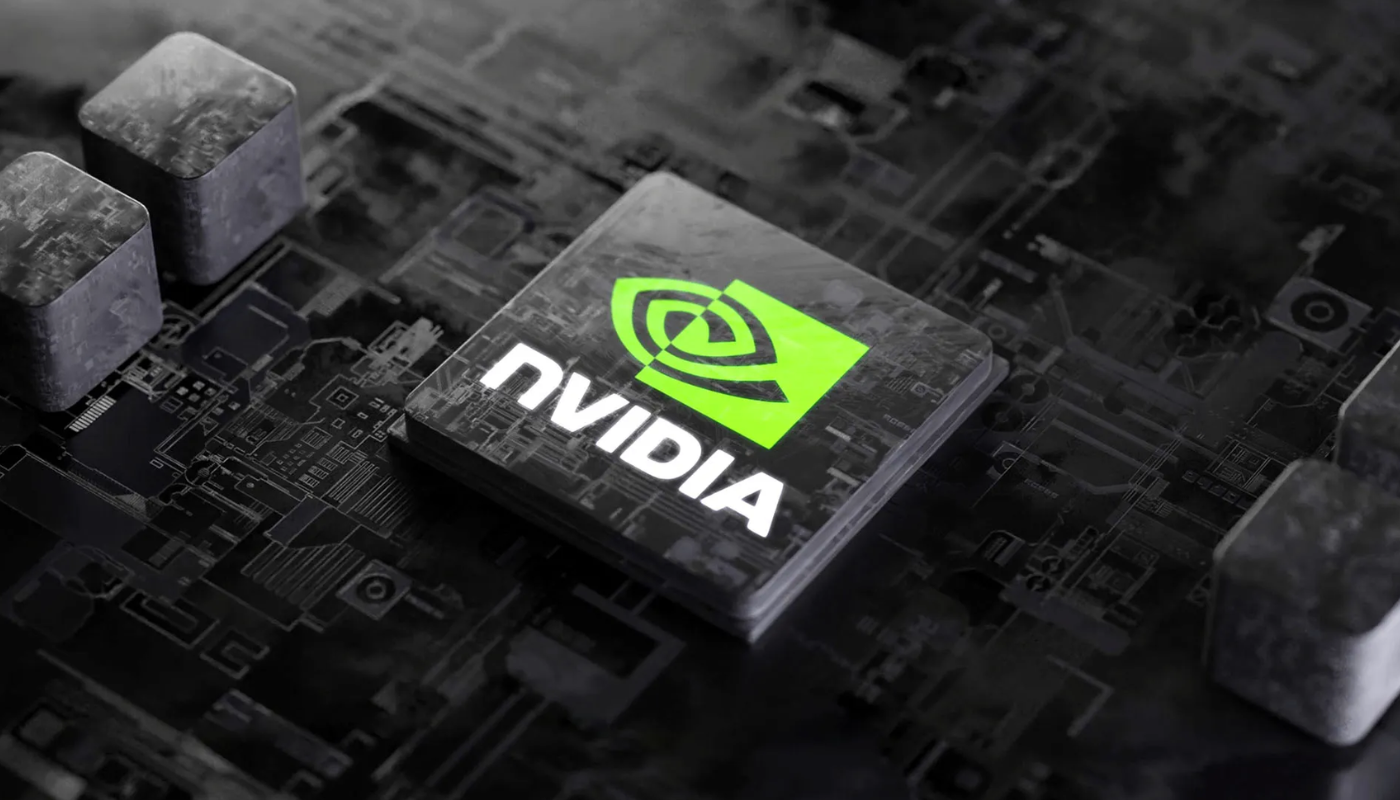Nvidia gains support from the Digital Chamber in a legal battle with investors, as the case could impact the entire cryptocurrency market.
An industry advocacy organization claims that the United States Supreme Court’s decision to allow a resurrected legal dispute between chip manufacturer Nvidia and a class of its investors to proceed will jeopardize the cryptocurrency market by subjecting it to a barrage of “frivolous securities lawsuits.”
The Digital Chamber (TDC), formerly The Chamber of Digital Commerce, supported Nvidia’s request that the US Supreme Court overturn an appeal court ruling from August last year. The judgment revived a lawsuit alleging Nvidia had understated the quantity of GPUs it supplied to cryptocurrency miners. The brief was sent on August 20.
“Felt compelled to weigh in due to the grave risks of a potential increase in frivolous securities lawsuits based on nothing more than unfounded negative perceptions about the cryptocurrency industry and its high-growth business cycle,” stated Perianne Boring, the founder and CEO of the Chamber.
According to TDC’s brief, the expert opinion cited in the class action lawsuit against Nvidia was based on “unsupported assumptions and inferences” regarding the company’s sales and the cryptocurrency market.
It stated that none of the plaintiffs’ assertions were “supported by a specific document, presentation, testimony, or any internal material.”
It asserted, “Nothing is stopping other plaintiffs from hiring additional experts to do the same thing.” “The most innovative businesses, such as many in the cryptocurrency sector, will be most affected.”
Industry titans in cryptocurrency, including Crypto.com, Ripple, and Binance, are members of TDC.
In response to a lawsuit filed in 2018, Nvidia was accused of concealing over $1 billion in GPU sales to cryptocurrency miners. Jensen Huang, the company’s CEO, officially denied that Nvidia was selling a significant portion of its goods to the industry.
The lawsuit stated that as the cryptocurrency market and Nvidia’s financial results declined simultaneously, it eventually became clear that miners were supporting the company’s sales.

TDC contended that to safeguard “critical, emerging technologies,” the Private Securities Litigation Reform Act of 1995 (PSLRA) established requirements that are both violated and unmet by the case.
The group contends that the class action must comply with the act, which requires a lawsuit to identify each purportedly misleading statement, provide evidence to support the claim, and explain why it is dishonest.
The Chamber stated in their statement that “if the plaintiffs win, it will set a dangerous precedent, allowing speculative and unsupported claims to succeed in court.”
It further stated that a potential onslaught of legal actions against cryptocurrency businesses would “burden them with costly litigation and discouraging investment,” thereby stifling innovation.
The group claimed that, in the end, this would hinder the development of blockchain technology and jeopardize the same safeguards the PSLRA intended to offer for developing high-tech sectors.



